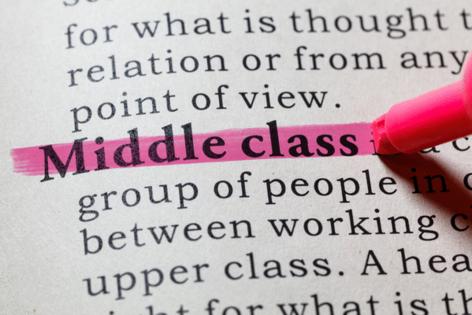Commentary: Our America -- A tragedy in five acts
Published in Op Eds
America likes to tell itself stories about freedom, democracy, and shared prosperity. But beneath those stories, a quiet tragedy has unfolded over the last fifty years — enacted not with swords or bombs, but with legislation, court rulings, and corporate strategy.
It is a tragedy of labor hollowed out, the middle class squeezed, and democracy captured, and it can be read through five acts, each shaped by a destructive force that charts the shredding of our shared social contract.
In the first act, productivity and pay part ways
In the postwar decades, Americans worked harder, innovated more, and produced more than ever. Until the late 1970s, those gains lifted all boats. Then the Airline Deregulation Act of 1978, followed by the deregulation of trucking and railroads, unleashed “efficiency” — but not fairness.
Output increased, but compensation flattened – and worse, not adjusting to inflation, effectively decreased. Workers produced, but they did not share in the rewards. The widening gap between effort and compensation became the first tragic force of this unfolding story.
The second act is the collapse of collective power
Union halls that once rang with voices demanding fairness were dismantled by the Taft-Hartley Act of 1947, which restricted union political activity and strikes, and by a wave of state right-to-work laws passed or strengthened in the 1970s and 1980s.
On the federal level, labor protections under the National Labor Relations Act (NLRA, 1935) were selectively enforced in ways that favored management. The disappearance of organized labor became the second destructive force. Workers, stripped of collective bargaining power, faced corporations alone. Democracy within the workplace, the ability to negotiate or strike for a fair share, was hollowed out.
Act three exposes the middle class under siege
The Economic Recovery Tax Act of 1981, along with subsequent Reagan-era tax cuts, lowered top tax rates, provided corporate windfalls, and starved public programs. The middle class, facing stagnant wages and rising costs, was squeezed. Debt became a lifeline; consumption a performance. Rising income inequality emerged as the third destructive force: the top 1 percent seizing the gains of growth while ordinary Americans struggled to maintain their standard of living. Families worked longer hours, yet the American dream grew distant and is now vanishing.
The fourth act turns inward, toward financialization
The partial repeal of the Glass-Steagall Act through the Gramm-Leach-Bliley Act of 1999 tore down the barriers separating commercial and investment banking. Corporate profits shifted toward speculation, stock buybacks, and shareholder dividends instead of workers’ wages.
The speculative machine became the fourth force of tragedy, extracting wealth from society while ordinary people carried the risk. Every bubble, every financial crisis, every foreclosure and bailout was a reminder that the economy had been repurposed for relentless extraction rather than shared sustainable growth.
The fifth act is the capture of democracy and information
The Telecommunications Act of 1996 allowed unprecedented consolidation of radio, television, and print media under a handful of corporations, while the Citizens United v. FEC decision of 2010 amplified corporate influence in elections. Democracy itself became the fifth tragic victim: legislatures bought, citizens outgunned, public opinion drowned by advertising and lobbying. Labor is silent, the middle class is weakened, and policy reflects wealth, not the public good. The system designed to serve the people now serves capital and does so without apology or discretion. The cruel consequences echo in every school, workplace, and paycheck.
Yet every tragedy opens the possibility of reversal by virtue of its telling
There is an unwritten sixth act, dependent not on law or regulation but on collective action, on citizens reclaiming influence, on labor reorganizing, and on democracy asserting itself over concentrated wealth. It is written in solidarity, vigilance, and the refusal to remain spectators in a system that extracts from the many to enrich the few. This is our tragedy. It is systematic, deliberate, and ongoing. And it demands not just recognition, but action.
_____
Ahmed Bouzid is the co-founder of The True Representation Movement.
_____
©2025 The Fulcrum. Visit at thefulcrum.us. Distributed by Tribune Content Agency, LLC.
























































Comments